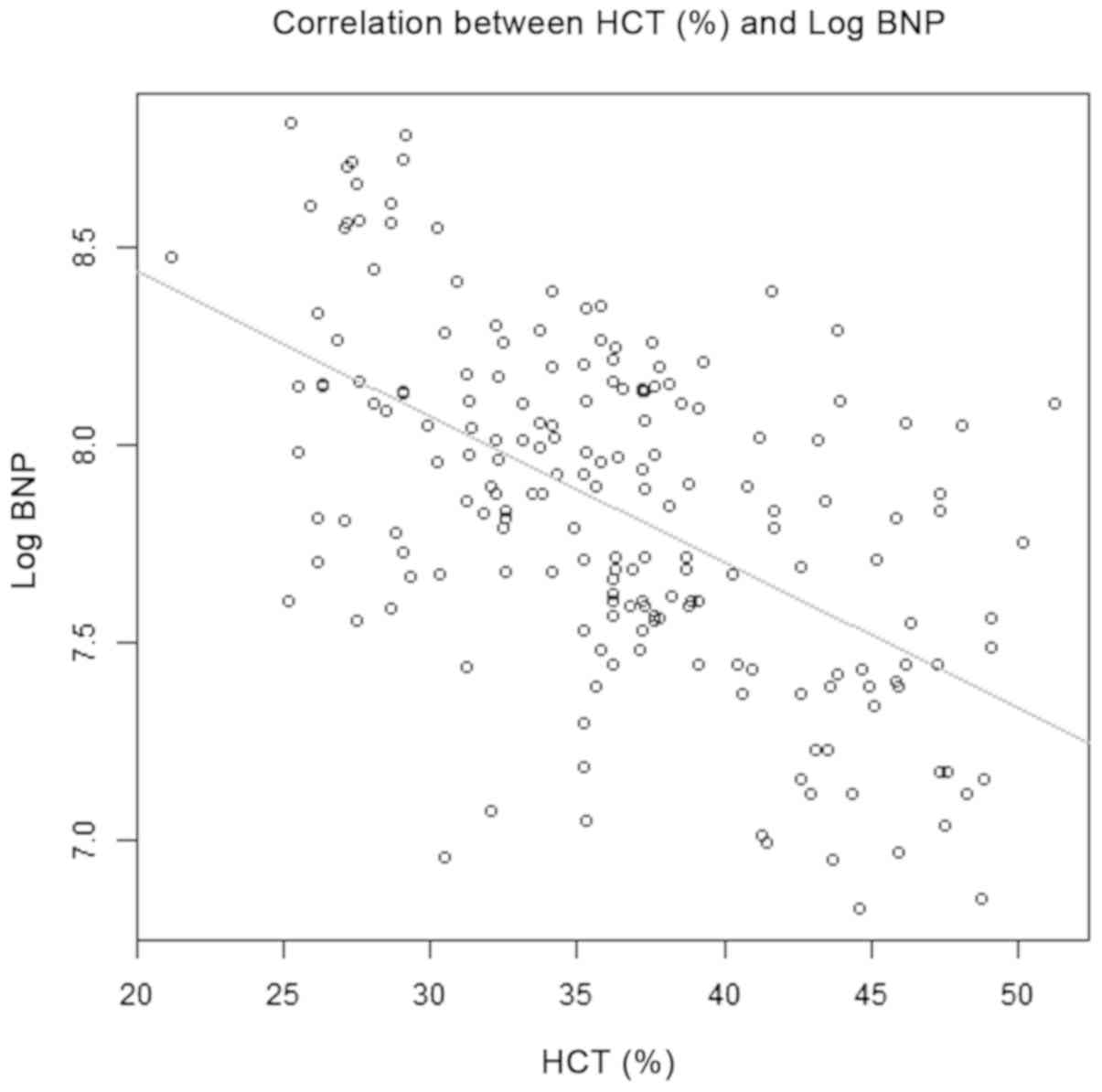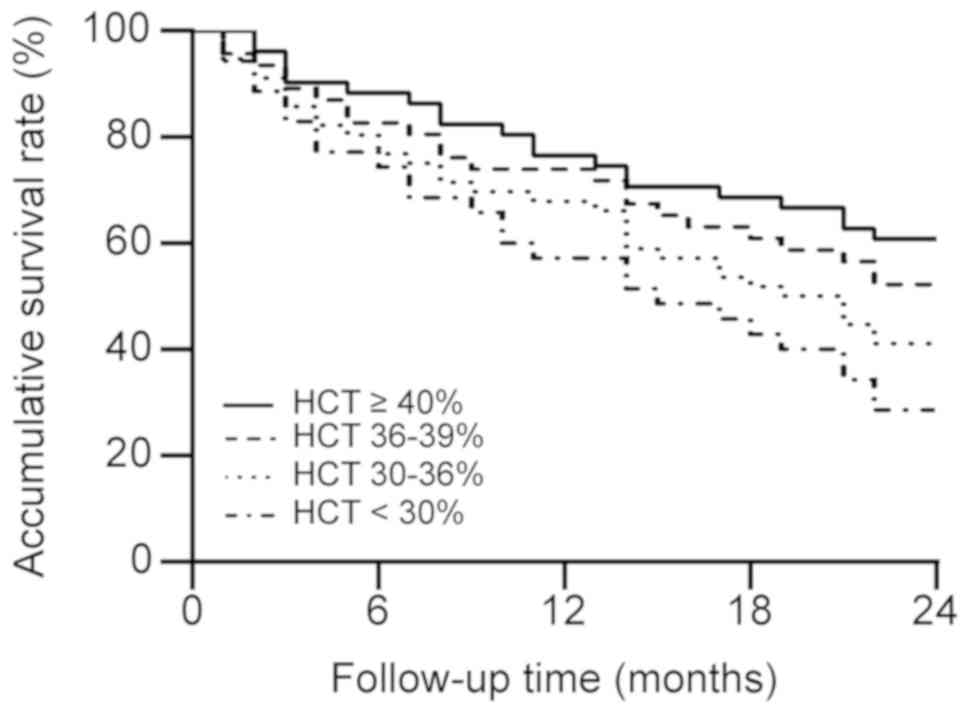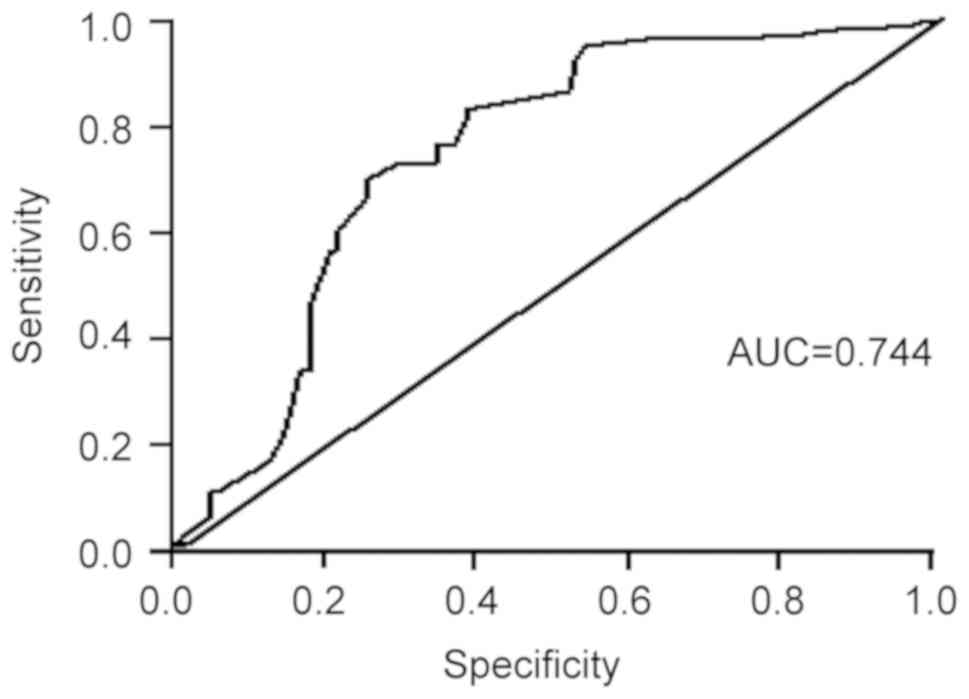|
1
|
Gheorghiade M, Zannad F, Sopko G, Klein L,
Piña IL, Konstam MA, Massie BM, Roland E, Targum S, Collins SP, et
al: Acute heart failure syndromes: Current state and framework for
future research. Circulation. 112:3958–3968. 2005.PubMed/NCBI View Article : Google Scholar
|
|
2
|
Kurmani S and Squire I: Acute heart
failure: Definition, classification and epidemiology. Current Heart
Fail Rep. 14:385–392. 2017.PubMed/NCBI View Article : Google Scholar
|
|
3
|
Felker GM, Lee KL, Bull DA, Redfield MM,
Stevenson LW, Goldsmith SR, LeWinter MM, Deswal A, Rouleau JL,
Ofili EO, et al: Diuretic strategies in patients with acute
decompensated heart failure. N Engl J Med. 364:797–805.
2011.PubMed/NCBI View Article : Google Scholar
|
|
4
|
Fonarow GC: Refining classification of
heart failure based on ejection fraction. JACC Heart Fail.
5:808–809. 2017. View Article : Google Scholar
|
|
5
|
Raphael C, Briscoe C, Davies J, Ian
Whinnett Z, Manisty C, Sutton R, Mayet J and Francis DP:
Limitations of the New York Heart Association functional
classification system and self-reported walking distances in
chronic heart failure. Heart. 93:476–482. 2007.PubMed/NCBI View Article : Google Scholar
|
|
6
|
Richards AM: Biomarkers in acute heart
failure-cardiac and kidney. Card Fail Rev. 1:107–111.
2015.PubMed/NCBI View Article : Google Scholar
|
|
7
|
Ray SG: Natriuretic peptides in heart
valve disease. Heart. 92:1194–1197. 2006.PubMed/NCBI View Article : Google Scholar
|
|
8
|
Ardissino G, Daccò V, Testa S, Civitillo
CF, Tel F, Possenti I, Belingheri M, Castorina P,
Bolsa-Ghiringhelli N, Tedeschi S, et al: Hemoconcentration: A major
risk factor for neurological involvement in hemolytic uremic
syndrome. Pediatr Nephrol. 30:345–352. 2015.PubMed/NCBI View Article : Google Scholar
|
|
9
|
Davila C, Reyentovich A and Katz SD:
Clinical correlates of hemoconcentration during hospitalization for
acute decompensated heart failure. J Card Fail. 17:1018–1022.
2011.PubMed/NCBI View Article : Google Scholar
|
|
10
|
Oh J, Kang SM, Kim IC, Han S, Yoo BS, Choi
DJ, Kim JJ, Jeon ES, Cho MC, Oh BH, et al: The beneficial
prognostic value of hemoconcentration is negatively affected by
hyponatremia in acute decompensated heart failure: Data from the
Korean Heart Failure (KorHF) Registry. J Cardiol. 69:790–796.
2017.PubMed/NCBI View Article : Google Scholar
|
|
11
|
Go AS, Yang J, Ackerson LM, Lepper K,
Robbins S, Massie BM and Shlipak MG: Hemoglobin level, chronic
kidney disease, and the risks of death and hospitalization in
adults with chronic heart failure: The Anemia in Chronic Heart
Failure: Outcomes and Resource Utilization (ANCHOR) Study.
Circulation. 113:2713–2723. 2006.PubMed/NCBI View Article : Google Scholar
|
|
12
|
Mozaffarian D, Nye R and Levy WC: Anemia
predicts mortality in severe heart failure: The prospective
randomized amlodipine survival evaluation (PRAISE). J Am Coll
Cardiol. 41:1933–1939. 2003.PubMed/NCBI View Article : Google Scholar
|
|
13
|
Lloyd-Jones D, Adams RJ, Brown TM,
Carnethon M, Dai S, De Simone G, Ferguson TB, Ford E, Furie K,
Gillespie C, et al: Executive summary: Heart disease and stroke
statistics-2010 update: A report from the American Heart
Association. Circulation. 121:948–954. 2010.PubMed/NCBI View Article : Google Scholar
|
|
14
|
Testani JM, Brisco MA, Chen J, McCauley
BD, Parikh CR and Tang WH: Timing of hemoconcentration during
treatment of acute decompensated heart failure and subsequent
survival: Importance of sustained decongestion. J Am Coll Cardiol.
62:516–524. 2013.PubMed/NCBI View Article : Google Scholar
|
|
15
|
O'Connell JB and Bristow MR: Economic
impact of heart failure in the United States: Time for a different
approach. J Heart Lung Transplant. 13(S107-S112)1994.PubMed/NCBI
|
|
16
|
Yancy CW, Lopatin M, Stevenson LW, De
Marco T and Fonarow GC: ADHERE Scientific Advisory Committee and
Investigators: Clinical presentation, management, and in-hospital
outcomes of patients admitted with acute decompensated heart
failure with preserved systolic function: A report from the Acute
Decompensated Heart Failure National Registry (ADHERE) Database. J
Am Coll Cardiol. 47:76–84. 2006.PubMed/NCBI View Article : Google Scholar
|
|
17
|
Waldum B, Westheim AS, Sandvik L, Flønæs
B, Grundtvig M, Gullestad L, Hole T and Os I: Baseline anemia is
not a predictor of all-cause mortality in outpatients with advanced
heart failure or severe renal dysfunction. Results from the
Norwegian Heart Failure Registry. J Am Coll Cardiol. 59:371–378.
2012.PubMed/NCBI View Article : Google Scholar
|
|
18
|
Alexandrakis MG and Tsirakis G: Anemia in
heart failure patients. ISRN Hematol. 2012(246915)2012. View Article : Google Scholar
|
|
19
|
Oh J, Kang SM, Hong N, Youn JC, Han S,
Jeon ES, Cho MC, Kim JJ, Yoo BS, Chae SC, et al: Hemoconcentration
is a good prognostic predictor for clinical outcomes in acute heart
failure: Data from the Korean Heart Failure (KorHF) Registry. Int J
Cardiol. 168:4739–4743. 2013.PubMed/NCBI View Article : Google Scholar
|
|
20
|
Ter Maaten JM, Valente MA, Damman K,
Cleland JG, Givertz MM, Metra M, O'Connor CM, Teerlink JR,
Ponikowski P, Bloomfield DM, et al: Combining diuretic response and
hemoconcentration to predict rehospitalization after admission for
acute heart failure. Circ Heart Fail. 9:2016.PubMed/NCBI View Article : Google Scholar
|
|
21
|
Cataliotti A, Boerrigter G,
Costello-Boerrigter LC, Schirger JA, Tsuruda T, Heublein DM, Chen
HH, Malatino LS and Burnett JC Jr: Brain natriuretic peptide
enhances renal actions of furosemide and suppresses
furosemide-induced aldosterone activation in experimental heart
failure. Circulation. 109:1680–1685. 2004.PubMed/NCBI View Article : Google Scholar
|
|
22
|
Durak-Nalbantić A, Džubur A, Dilić M,
Pozderac Z, Mujanović-Narančić A, Kulić M, Hodžić E, Resić N,
Brdjanović S and Zvizdić F: Brain natriuretic peptide release in
acute myocardial infarction. Bosn J Basic Med Sci. 12:164–168.
2012.PubMed/NCBI View Article : Google Scholar
|
|
23
|
Eindhoven JA, van den Bosch AE, Jansen PR,
Boersma E and Roos-Hesselink JW: The usefulness of brain
natriuretic peptide in complex congenital heart disease: A
systematic review. J Am Coll Cardiol. 60:2140–2149. 2012.PubMed/NCBI View Article : Google Scholar
|
|
24
|
Roberts E, Ludman AJ, Dworzynski K,
Al-Mohammad A, Cowie MR, McMurray JJ and Mant J: NICE Guideline
Development Group for Acute Heart Failure: The diagnostic accuracy
of the natriuretic peptides in heart failure: Systematic review and
diagnostic meta-analysis in the acute care setting. BMJ.
350(h910)2015.PubMed/NCBI View
Article : Google Scholar
|
|
25
|
Di Angelantonio E, Chowdhury R, Sarwar N,
Ray KK, Gobin R, Saleheen D, Thompson A, Gudnason V, Sattar N and
Danesh J: B-type natriuretic peptides and cardiovascular risk:
Systematic review and meta-analysis of 40 prospective studies.
Circulation. 120:2177–2187. 2009.PubMed/NCBI View Article : Google Scholar
|
|
26
|
van Veldhuisen DJ, Linssen GC, Jaarsma T,
van Gilst WH, Hoes AW, Tijssen JG, Paulus WJ, Voors AA and Hillege
HL: B-type natriuretic peptide and prognosis in heart failure
patients with preserved and reduced ejection fraction. J Am Coll
Cardiol. 61:1498–1506. 2013.PubMed/NCBI View Article : Google Scholar
|
|
27
|
Iacoviello M, Leone M, Antoncecchi V and
Ciccone MM: Evaluation of chronic kidney disease in chronic heart
failure: From biomarkers to arterial renal resistances. World J
Clin Cases. 3:10–19. 2015.PubMed/NCBI View Article : Google Scholar
|
|
28
|
Koglin J, Pehlivanli S, Schwaiblmair M,
Vogeser M, Cremer P and vonScheidt W: Role of brain natriuretic
peptide in risk stratification of patients with congestive heart
failure. J Am Coll Cardiol. 38:1934–1941. 2001.PubMed/NCBI View Article : Google Scholar
|
|
29
|
Shlipak MG, Chertow GC and Massie BM:
Beware the rising creatinine level. J Card Fail. 9:26–28.
2003.PubMed/NCBI View Article : Google Scholar
|
|
30
|
Arakawa K, Ando Y, Matsunaga S and
Nishiura A: Diagnostic ability of natriuretic peptides for heart
failure according to eGFR level: Comparison between brain
natriuretic peptide and amino-terminal probrain natriuretic
peptide. Rinsho Byori. 64:251–257. 2016.(In Japanese). PubMed/NCBI
|

















